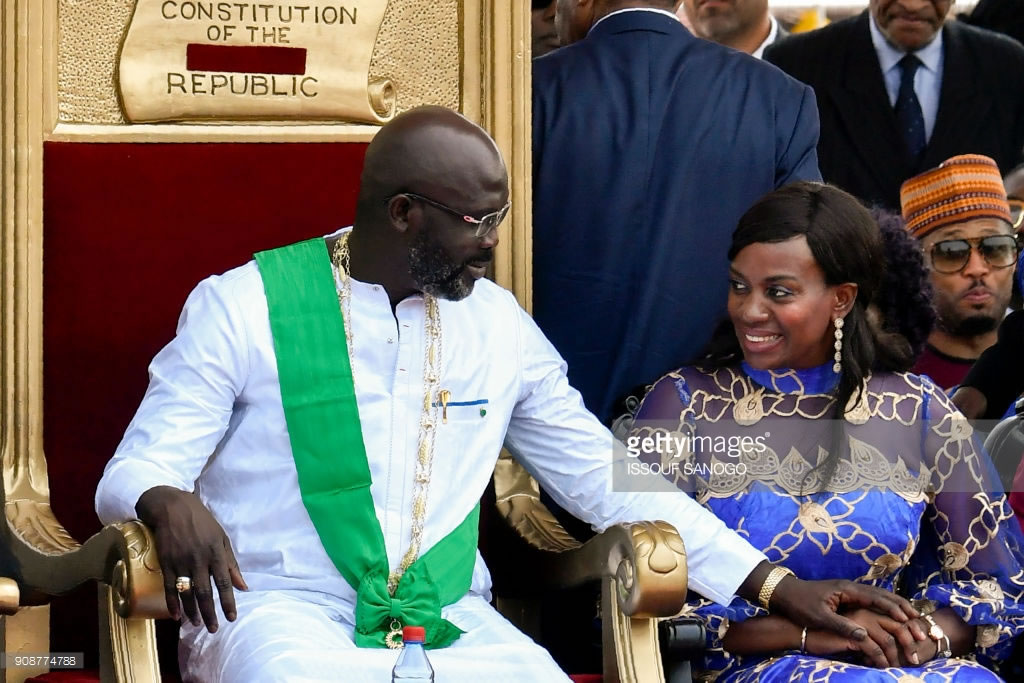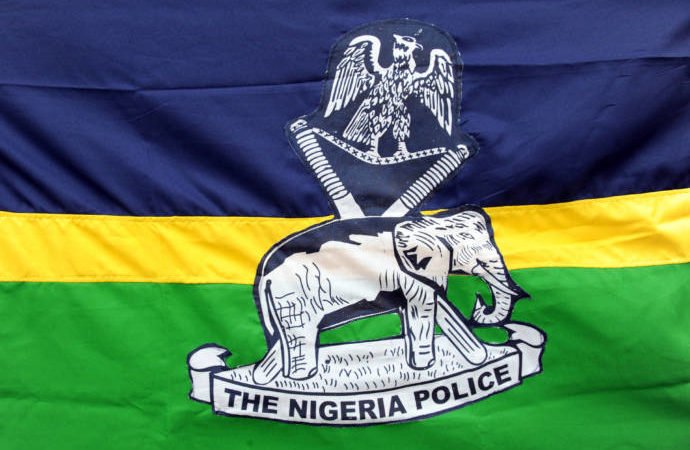When President George Weah was Senator he had requested the Ministry of Foreign Affairs to issue his wife a Liberian passport.
She was denied on grounds that she was not a Liberian citizen.
Madam Clar Weah, who was born in Jamaica to Jamaican parents, migrated to Fort Lauderdale, Florida in the United States where she runs a thriving Caribbean restaurant and grocery store.
According to reports, the President met his wife, Clar, at a Chase bank, where she worked as a Customer Service personnel. He had gone to open an account with the bank.
She was firstly denied possessing a Liberian passport even after her fingerprints were done at the Ministry of Foreign Affairs.
But with her new portfolio, her husband will waive her status and she will possess a Liberian passport.
In an interview with this newspaper, Cllr. Linda Boley, a former officer of the Liberia Immigration Service (LIS), said when she firstly came she should have taken the permit for residence, which is valid for one year.
“Notwithstanding, she can now have a passport because her husband will waive her status and make her have a Liberian passport. But if he doesn’t, she would have to carry her country’s passport.”
She stated that the process only requires a letter from the President’s office waving her status and the letter will have to pass through the LIS and later to the court that will enable her have a passport.
The former LIS officer recalled another situation with former President Ellen Johnson Sirleaf’s son, Robert Sirleaf.
According to her, when Robert came back home a few years into his mother’s reign as President, he applied for a permanent resident permit prior to contesting for the seat.
The Aliens and Nationality law of Liberia Subchapter A. ‘Obtaining naturalization’ of which section 21.3. Petition for naturalization states: “Waiver of requirement for time interval after filing declaration of intention.
The requirement stated in paragraph 1 of this section that a minimum of two years elapse after the filing of a declaration of intention before the filing of a petition for naturalization, may be waived by the President of Liberia, and an applicant as to whom such waiver has been granted may become a citizen immediately after filing his declaration of intention upon taking the oath of allegiance.”
Also subchapter B. Naturalization or Restoration to Citizenship of Special Categories of Aliens section 21.30.
A woman who marries citizen states, “A woman of negro descent who marries a citizen of the Republic shall not become by virtue of such act of marriage a citizen of Liberia.
Such woman may be naturalized if she is qualified in conformity with all of the provisions of section 21.1 of this title and complies with all the procedural requirements for naturalization set forth in this chapter.63.
But as the First Lady of Liberia section 21.3 supersedes section 21.30 of which she will be given a passport.
In obtaining a passport according to the Ministry of Foreign Affairs Article Iii Specific Requirements For The Application And Use Of Certain Categories of Liberian Passports/Travel Documents section 3.1 Applicants for Diplomatic Passports must give written proof or evidence that they are employees of the Government of Liberia with a rank or status as contained in these regulations or individuals who are or maybe required or assigned to serve the Republic of Liberia as diplomatic emissaries to foreign nations or governments; or show proof that a specific waiver of these requirements have been approved by the Minister of Foreign Affairs or a dispensation given by the President of the Republic of Liberia.
Madam Boley said Clar is the First Lady and also she’s of Negro descent and can be granted a Liberian passport.
According to her only two ways a citizenship can be conferred either by the President or through the court.
Clar, in the capacity of First Lady, recently paid a courtesy call on Isaac Asiamah, Minister of Youth and Sports (MoYS) of Ghana.
She used the visit to thank Ghana and the Ministry on behalf of her husband. She said how Ghana has been helpful to Liberia over the years and urged the Ministry to lend support to her country to revamp sports and empower the youth.
“Ghana has received us very well and it has been incredible over the years, the support has been in various forms and my husband and I are very much grateful.
“It is a new dawn in Liberia and we have a lot to learn from Ghana in terms of youth development and empowerment. We believe that for a country to grow and prosper the youth must take active part in sports and that is what my husband stands for.”
According to a source at the Roberts International Airport, Clar has been traveling on a foreign passport.
Meanwhile, he President was on Thursday, January 25, was seen at the Passport and Visas Division of the Foreign Ministry trying to obtain a new passport befitting his new status.
The Foreign Ministry through its passport section confirmed to FPA that President Weah and the First Lady are yet to obtain their diplomatic passports.
Liberia is not a dual citizenship country. The Supreme Court has heard arguments on whether to consider Liberians, who hold another country’s citizenship but it’s yet to render its opinion.
A full bench heard the arguments of the Alvin Teage Jalloh, a Liberian born and naturalized US citizen versus Liberian government.
Alvin Teage Jalloh was represented by and thru his attorney Jerome Korkoya of City of Monrovia Versus Olubanke King Akerele, Minister of Foreign Affairs (former), Christiana Tah, Attorney General, Minster of Justice (former) and Milton Nathaniel Barnes, Liberia’s Ambassador to the U.S (former) in the action petition in Re: Constitutionality of sections 22.1 &22.2 of the Alien and Nationality Act.
The case was brought following a decision by the Consular Officer to refuse a passport to Mr. Jalloh, who lives in the US.
In the petition, Mr, Jalloh argued that he was born March 23, 1975 in Bopolu, Gbarpolu to two Liberian citizens and acquired his Liberian citizenship at birth.
He says after fleeing the consequences of the brutal civil war in Liberia, he acquired a U.S citizenship in accordance with the naturalization law of the U.S.
He challenged section 22.1 (subsections A, B, C, D) and section 22.2 of the alien and nationality act of Liberia.
Chapter 22 of the Alien and Nationality Law of Liberia prohibits Liberian citizens from taking other nationalities or engaging in certain acts in foreign countries like joining the armed forces or voting in elections.
Recently, the Liberian Senate decided to reject nominations of persons with dual citizenships.
The Senate’s decision, according to sources within the Capitol, is intended to avoid people who have sworn oath of allegiance to other countries from holding positions of trust in the new government.
“We cannot continue to confirm people whose loyalty is to America; this was a mistake we made over the years and we want to correct those wrongs. We will write the President and inform him of this decision so he can take the necessary measures.”
Culled from Here





